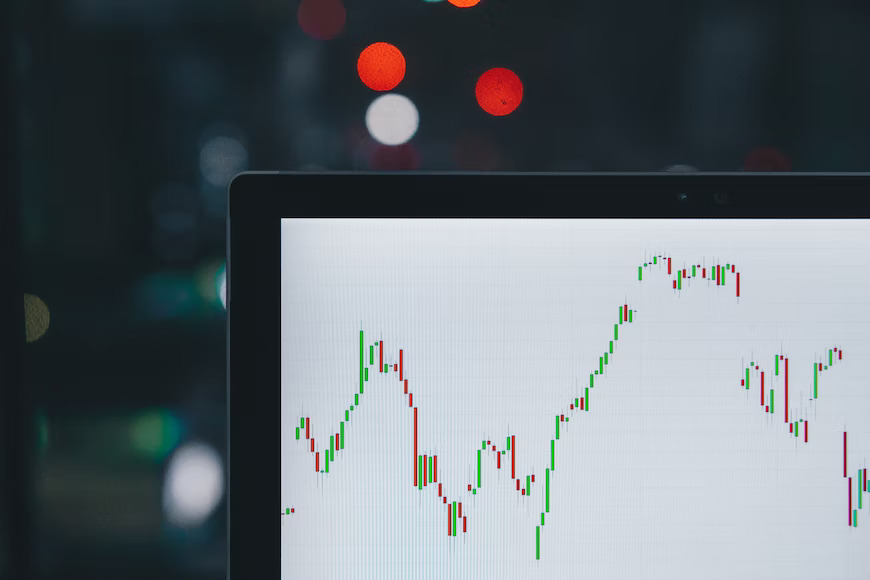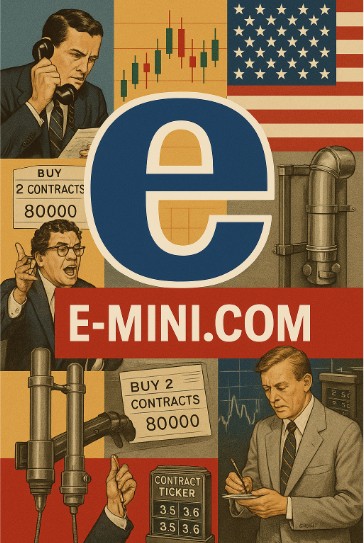What are futures and how do you trade them?
Futures trading is a popular form of investment where traders can buy and sell contracts to speculate on the future price of an underlying asset. Futures allow investors to hedge against certain market risks, such as inflation and currency fluctuations. By investing in futures, investors are able to make bets on where they think the market will be in the near future. Futures contracts can be used to hedge against risk or to speculate on market directions, depending on your strategy. When you trade futures, you will typically do so through online brokers or financial institutions that offer access to commodity exchanges like CME Group and Eurex. When trading futures, the minimum amount required is referred to as “margin” which helps ensure that traders have enough capital for their transactions should the market moves against them.
Who trades Futures?
When it comes to trading futures, there are many different types of traders who get involved. The most common type is professional traders and investors who use futures to hedge their portfolio or speculate on price movements in the markets. They may be part of large institutions or dedicated prop firms, where they have access to sophisticated trading technology and market data.
- Another group are retail traders, which includes individual investors and day traders looking for new opportunities where they can diversify their investments or take advantage of fast-paced price movements with low costs. Thanks to advancements in technology, these types of traders now have access to powerful futures platforms where they can trade multiple markets at once from their own home computer, or smart phone.
- Finally, while not as common, there are also algorithmic traders who use sophisticated computer programs to identify entry and exit points in the markets. Algorithmic trading is becoming increasingly popular due to its ability to eliminate human emotion from decisions, allowing for more consistent trades.
What is a futures contract?
A futures contract is a legally binding agreement to buy or sell an asset at an agreed upon price in the future. It is the most common type of derivatives trading and can be used to hedge against risks faced by investors and corporations. Futures contracts are traded on exchanges where buyers and sellers can agree on a price for their orders.
Futures markets are complex, but they offer many advantages over traditional investments such as stocks and bonds, including greater liquidity, lower transaction costs, higher leverage than stock markets and more efficiency when it comes to buying/selling large quantities of assets. They also provide investors with access to global market trends without exposure to excessive currency risk since prices are negotiated in local currencies, reducing potential losses from unanticipated changes in the exchange rate.
Types of futures contracts & examples
When it comes to different types of futures contracts, some of the most popular include energy futures such as crude oil, natural gas and heating oil; agricultural futures like corn or soybeans; financial futures including currency pairs, interest rate products and stock indices; and finally, metals futures for trading gold, silver or copper. Each contract has its own set of rules regarding delivery date, size and expiration month. For example, crude oil future traders can trade contracts in 12 different months with sizes ranging from 100 to 1000 barrels per contract.
Futures can be traded on a variety of different commodities, indices and currencies. The most popular futures contract is for crude oil, but investors can also trade many other commodities such as gold, soybeans and corn. A futures contract on an index such as the S&P 500 allows traders to speculate on where they think the index will go in the near future. Currency futures are geared more towards institutional investors who want to hedge their portfolios against currency fluctuations, and speculators assuming the risk.
How to set up futures trading platforms?
- Setting up a futures trading platform is easy, and there are several options available to traders. Futures brokers offer a range of different types of software for their clients, from desktop platforms to mobile apps where traders can monitor their positions wherever they are. The best platform for any particular trader will depend on the type of assets they’re looking to trade and the frequency with which they want to trade.
- If you are looking to get started in futures trading, the first step is to set up a platform where you can place orders and manage your positions. There are many different options available when it comes to where to trade futures, and it can be overwhelming trying to decide which one is best for you. To help make this decision easier, we’ve put together this guide on how to set up a futures trading platform.
- The first thing you need to do is decide where you want to trade futures. There are many different exchanges where you can buy and sell futures contracts, including the Chicago Mercantile Exchange (CME), NYSE Liffe US, Eurex, ICE Futures Europe, NYMEX/COMEX and many more. Each exchange has different trading rules, fees and margin requirements, so it’s important to research which one is best for you.
- Once you have chosen a platform, the next step is to open an account with the broker that offers the platform. You’ll need to provide some personal information, such as your name and address, as well as a valid form of payment. The broker will also require you to go through an application process where they will review your financial history and other relevant information in order to determine if you meet their eligibility requirements for trading futures.
- Now it is time to fund your account so that you can start trading futures. Depending on the broker, this may involve linking a bank account or credit card where funds can be withdrawn from or added to your account. Once this is done, you are ready to begin trading futures.
- The last step is to familiarize yourself with the platform and its features so that you can make the most of your trading experience. Take some time to explore the platform and understand where you can place orders, view charts and analyze market data. There are also tutorials available that can help you become more comfortable with the platform before you start trading.
- By following these steps, you should have a futures trading platform set up and ready to go in no time! With the right knowledge and practice, you’ll be well on your way to becoming a futures trader.
Some Examples of Assets that Can Be Traded Using Futures
- In addition to the commodities mentioned above, investors can also trade currencies such as the euro or Japanese yen, indices including the Dow Jones Industrial Average or NASDAQ Composite Index and ETFs such as SPDR S&P 500 or iShares Russell 2000.
- From crude oil to currencies, futures trading can be a great way for investors of all sizes to gain exposure to the markets. With so many different types of assets available to trade, finding the best platform and getting started is easier than ever before. Investing in futures can help investors diversify their portfolio and potentially make profits even when the market is volatile or uncertain. Whether you’re a seasoned trader or just starting out, taking advantage of this powerful investment tool can help you reach your financial goals. Get started with futures trading today!
Disclaimer – Trading Futures, Options on Futures, and retail off-exchange foreign currency transactions involves substantial risk of loss and is not suitable for all investors. Past performance is not indicative of future results. You should carefully consider whether trading is suitable for you in light of your circumstances, knowledge, and financial resources. You may lose all or more of your initial investment. Opinions, market data, and recommendations are subject to change at any time.




